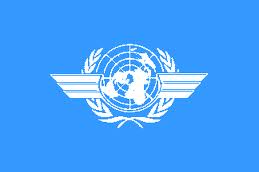ICAO says PH now meets int’l aviation safety standards

The Department of Transportation and Communications said the ICAO Council in a March 7 electronic bulletin said the country implemented corrective actions in accordance with the mechanism approved by the Council to resolve two SSCs – the issuance of air operator certificates and the aircraft registration process.
“And… as a result, these SSCs have been lifted,” the ICAO bulletin said.
The DOTC said the ICAO’s own public statement had major implications for the Philippine economy. “It not only strengthens our efforts to meet international safety standards for the aviation sector, it also boosts the government’s tourism goals,” the DOTC said in a statement.
The Department of Tourism has set a target of attracting 10 million foreign tourists to the Philippines by 2016—more than triple the three million tourists that came to the Philippines during the first year of President Aquino’s term in 2010.
The resolution to remove the country from ICAO’s list of countries with unresolved SSCs followed the exit briefing held between the ICAO’s Coordinated Validation Missions (ICVM) Team and officials of the CAAP and the Department of Transportation and Communications (DOTC) on February 202.
“The ICVM Team expressed great satisfaction with CAAP’s efforts to comply with international safety standards,” the DOTC said.
After the exit briefing, the ICAO ICVM team recommended to the ICAO Headquarters in Montreal, Canada, the lifting of the SSCs it previously raised with respect to the Philippines.
“This development provides more motivation for CAAP to continue on the long road toward achieving Category 1 status and lifting the European Union ban on Philippine flights,” added the DOTC.
An original 89 items were tagged as SSCs by the ICAO when the country first failed its audit. Other countries cited with deficiencies in the 2010 report were Angola, Bangladesh, Cambodia, Djibouti, Kazakhstan, Guinea-Bissau, Malawi, Rwanda and Zambia.
The country’s successful passing of the audit is expected to result in the lifting of the European Union’s ban on Philippine carriers from entering European air space.
In 2007, the Philippines also failed an audit by the US Federal Aviation Administration. The FAA downgraded the country to “category 2” status, preventing local airlines from expanding operations in the US.
Transportation Secretary Joseph Emilio “Jun” Abaya earlier said the FAA may conduct its own separate audit but also has the option of adopting the ICAO’s findings.
This could lead to an upgrade to Category 1 status, opening up the US market to local carriers. Currently, the only local carrier with flights to the US is Philippine Airlines.